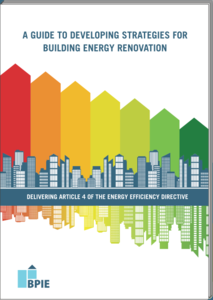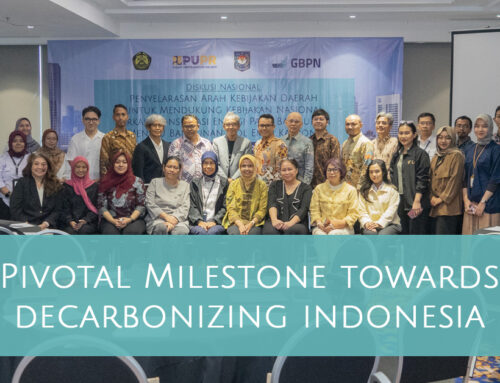[Report] New BPIE Guide – Supporting EU Member States in Developing Ambitious Renovation Strategies
The Buildings Performance Institute Europe (BPIE), the GBPN Europe Hub, has produced a Guide to Developing Strategies for Building Energy Renovation, which will help the EU Member States develop the first version of their renovation strategies to be published by April 30th 2014.

Deep renovations are specifically encouraged by the Energy Efficiency Directive (EED, 2012/27/EU) through the requirement for Member States to establish long term strategies for the renovation of national building stocks covering all building types, including residential and non-residential buildings, whether in private, public or mixed ownership.
The adoption of the EED in October 2012, developed in order to help deliver the EU’s 20% headline target on energy efficiency by 2020, as well as to pave the way for further improvements thereafter, provides the regulatory drive around which to define a body of support to achieve this long-term ambition. (EED, article 4 requirements on building renovation)
Alongside EED, the Energy Performance of Buildings Directive (EPBD, 2010/31/EU), recast in 2010, sets out numerous requirements including energy performance certification of buildings, inspection regimes for boilers and air conditioning plants, and requirements for new buildings to be nearly zero energy. EPBD sets minimum energy performance standards for buildings undergoing renovation. Together, EED and EPBD provide a framework for Member States to drive the reduction of energy use in buildings, thereby delivering a range of economic, environmental, societal and energy security benefits.
This guide is a template that can be used for strategy development, setting out the multiple benefits arising from improving the energy performance of buildings. It highlights the existence of numerous challenges to the achievement of the potential benefits. It argues for Member States to be visionary in setting out a long term strategy for building stock renovation: it is vital that national renovation strategies are ambitious in their scope and coverage, and that they take full advantage of the state of the art, in terms of technology, policy and institutional arrangements. The strategy development process is described in details, including a description of the five key phases and a suggested list of actions MS could take to underpin the strategy.
BPIE aims to work with Member State representatives over the coming year to help ensure national renovation strategies deliver their full economic potential, as well as to create knowledge and awareness around best practice in renovation strategy development and delivery.
A guide to Developing Strategies for Building Energy Renovation
Related Laboratory Projects
Share This Story, Choose Your Platform!
Stay in touch with how we’re transforming the buildings sector
GBPN runs innovative building policy reform programs in key regions around the world that aim to tackle the climate emergency by decarbonising the buildings sector. Stay up to date with our newsletter.
Stay in touch with how we’re transforming the buildings sector
GBPN runs innovative building policy reform programs in key regions around the world that aim to tackle the climate emergency by decarbonising the buildings sector. Stay up to date with our newsletter.






